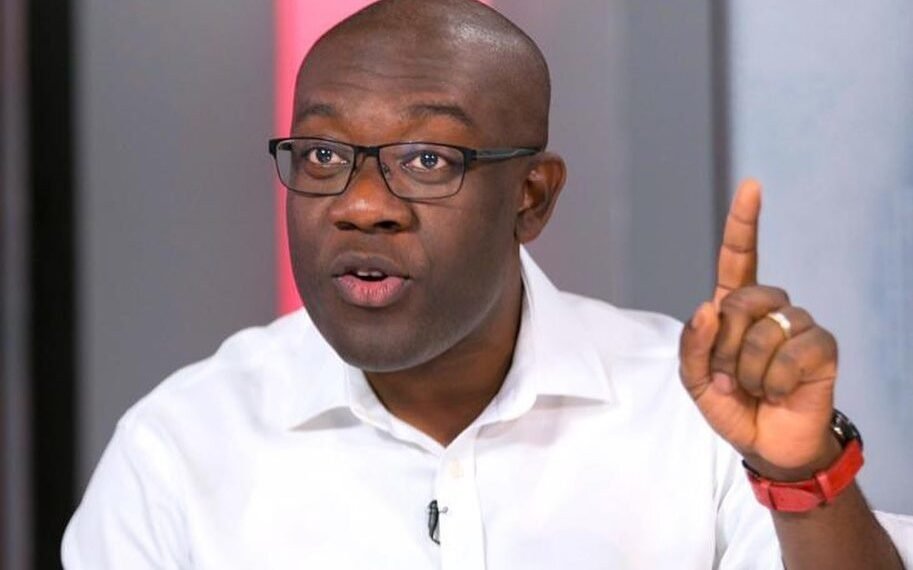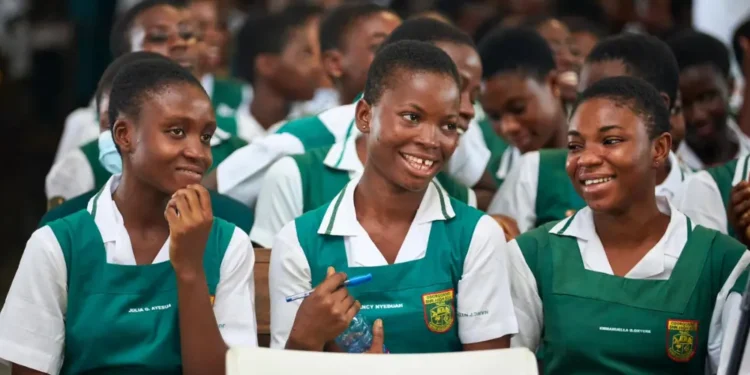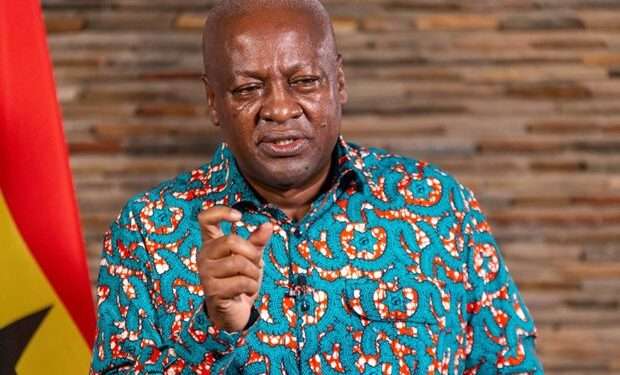The Ranking Member of Parliament’s Economy and Development Committee, Hon. Kojo Oppong Nkrumah, has criticized the 2025 budget, raising serious concerns about the credibility and consistency of the budget.
He argued that while the government claims to have made expenditure cuts, the figures in the budget contradict this assertion. Additionally, he criticized allocating funds to government machinery at the expense of key developmental initiatives.
Hon. Nkrumah strongly disputed the government’s claim that the 2025 budget represents a reduction in expenditure. He highlighted the stark increase in total appropriation from the previous year’s budget.
“First of all, there’s a budget that the government told us was going to see a cut in expenditure. When you look at the numbers in the budget, the 2024 budget by the NPP government had a total appropriation of 250 billion Ghana cedis. This budget that the [NDC] have brought has a total appropriation of 290 billion Ghana cedis. That is an increase by some 40 billion Ghana cedis. And that cannot be a cut by any stretch of imagination.”
Hon. Kojo Oppong Nkrumah Ranking Member of Parliament’s Economy and Development Committee
According to Hon. Nkrumah, this significant increase in expenditure contradicts the government’s narrative of fiscal discipline.
Another major concern raised by Hon. Nkrumah is the mismatch between the government’s rhetoric and actual allocations in the budget. He particularly focused on the funding for infrastructure and women’s development.
“When you look at this budget, in English terms, we are told that this is a budget that is going to put money in infrastructure and put money in supporting, for example, women. You need about 1.5 billion Ghana cedis by our modeling to be able to set up any meaningful women’s development bank. This government rather puts 51 million Ghana cedis in the women’s development bank that cannot even get a license. You need 400 million Ghana cedis just for the license and instead [the government] puts about 2.7 billion Ghana cedis at the office of government machinery.”
Hon. Kojo Oppong Nkrumah Ranking Member of Parliament’s Economy and Development Committee
He argued that this level of misallocation demonstrates a lack of commitment to fulfilling campaign promises and addressing critical national issues.
Meanwhile, the Government has issued an earlier disclaimer by Felix Kwakye Ofosu to debunk claims by the Minority that 78.8 million Ghana cedis has been allocated to the Ministry of Government Communication, which Felix Ofosu Kwakye breaks it down that the money was rather allocated to three agencies under his [Felix Ofosu Kwakye] department.
“First of all, if that is his [Felix Ofosu Kwakey] answer, it betrays the claim they made earlier that they had made savings by collapsing these ministries. You would recall that when the [government] made this claim, we drew the attention to the fact that they haven’t fired anybody from the ministry or from the agency. So no savings whatsoever has been made. And that he himself and his deputy Shamima were still minister and deputy minister who would draw the same salary, the same fuel, the same operational expenditure as though they had been christened properly as minister and deputy minister.”
Hon. Kojo Oppong Nkrumah Ranking Member of Parliament’s Economy and Development Committee
He further backed his argument with figures from the budget appendix, showing that the government’s explanation lacks merit.
“If you look at the fourth row, that is a subtotal. Government communication is GHS 78 million. In fact, there are twelve agencies under the office of government machinery. The total compensation under the office of government machinery is GHS 9 billion. The office of the president, Jubilee House alone, is taking GHS 2.7 billion, while the other eleven share the outstanding about 6 GHS billion or so.”
Hon. Kojo Oppong Nkrumah Ranking Member of Parliament’s Economy and Development Committee

Hon. Nkrumah emphasized that if the government’s claim were accurate, the salary allocations for these agencies would have been reflected in a different section of the budget.
Concerns Over Ghana’s Return to the Bond Market
Turning his attention to Ghana’s return to the domestic bond market, Hon. Nkrumah criticized the government’s approach and timing, arguing that its inconsistent narrative about Ghana’s economic situation raises credibility issues.
“We are saying that it is curious that in one breath, the NDC government sought to claim that we had left a debt distress situation that made it impossible for us to go to the capital markets anytime soon. In another breath, when the results showed clearly that the debt-to-GDP ratio has dropped to 61.8%, the finance minister conveniently refuses to mention it in Parliament. Then he turns around to try to take advantage of it, to go to the capital markets, and to resume borrowing on the capital markets. And we think that is disingenuous.”
Hon. Kojo Oppong Nkrumah Ranking Member of Parliament’s Economy and Development Committee
He highlighted how the government previously criticized the NPP administration over its debt management but is now benefiting from the improved economic indicators left behind.
“The NDC administration left us 63% of GDP [in 2016] and [now] wanted to blame us for about 80%. Now GDP figures are out showing 1.2 trillion Ghana cedis, and so it drops to 61.8. You refuse to acknowledge it, yet you want to take advantage of it and turn around and go back to the capital market?”
Hon. Kojo Oppong Nkrumah Ranking Member of Parliament’s Economy and Development Committee
Hon. Nkrumah warned that the government’s attempt to manipulate economic data for political purposes could have serious consequences.
“When you cook up 49 billion Ghana cedis and add it to the budget as unreleased claims in a bid to show or to prove a claim that we mismanaged the economy, with GHS 49 billion being fictitious anyway, the bond markets are beginning to punish you for it. And you are now beginning to put at risk the final review of the IMF program, which review you need to pass to be able to attract the funding from the development partners, which review you need to pass to be able to hold on to the agreement that has been made under the debt exchange program.”
“We are calling out and cautioning that this, may I say, propaganda approach to try and paint everything black just to satisfy a political appetite, bodes ill for the Ghanaian economy going forward.”
Hon. Kojo Oppong Nkrumah Ranking Member of Parliament’s Economy and Development Committee
Hon. Kojo Oppong Nkrumah’s critique of the 2025 budget and the government’s economic policies highlights inconsistencies in expenditure claims, misplaced priorities in resource allocation, and a lack of transparency in economic data.
His analysis suggests that the government’s approach to financial management needs more clarifications as it could have significant consequences for Ghana’s economic stability.
READ ALSO; Ghana’s $3bn IMF-Supported Programme Faces Serious Setbacks




















